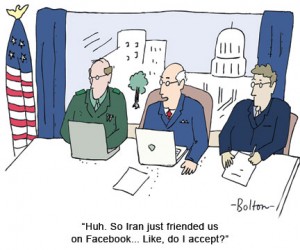UNABLE to find a job after university, Muhammad Bouazizi moved to a big city and tried to get by, selling vegetables from a barrow. But police confiscated his unlicensed cart, slapping and insulting him. The 26-year-old returned to his home town in despair. Last month he stood in its main square, doused himself in petrol and struck a match. On January 4th he died of his injuries.
( http://www.economist.com/node/17862305)
http://www.bbc.co.uk/news/world-africa-12180954
Today I came across a really profound story: one in which a young Arab immolated himself after losing the sole means of providing support for his family. Some bloggers are now referring to him as “the most famous Arab in the world”.
His action, has tragically brought to light many of the longstanding problems Tunisia’s youth now face: government cronyism, corruption, restriction of civil rights, and an unemployment rate as high as 30 percent.
The country has largely prospered under the authoritarian government of elderly technocrat Ben Ali for the last twenty-some years, despite his heavy handed approach. Citizens grudgingly accepted their lack of democratic rights, provided that economic conditions within the country continued to improve. This acceptance has been slowly waning due, in part, to the inability of the Ali government to deal with the country’s mounting problems. This week protesters numbering in the thousands have forced Ali to flee the country, and an interim government has taken over promising to create a unitary government in the near future.
In context, the struggle in Tunisia is interesting. On one hand, it is comparable to other democratic movements seen in the last fifty years: growing pressure on repressive, undemocratic governments by a large, mobilized civil society culminating in meaningful political change.
On the other hand, it presents one of the few, if any, democratic movements in the Arab world that is not Islamized. It has drawn support from other country’s in the region, notably Egypt and Lebanon. Most importantly, it may signify a change in traditional organization methods within civil society vis-a-vis the state.
Tunisia, when analyzed, seems to present classic characteristics of a transitionary democracy. It has had a long period of moderate stability, a high level of education, and deteriorating economic conditions. What remains unique is the role of technology. Despite being rated among the worst in the world in terms of freedom of information, advancements in technology have allowed many of the daily internet users free access to information: one example being the recent Wikileaks release proposing American criticism of the Ali regime.
This “globalization” of technology has led to what may be deemed an online revolution within Tunisia: where social media and blogging sites, alongside Facebook, Youtube and Twitter, have been successfully used by pro-democracy activists to mobilize and spread information despite the best efforts of government officials to restrict access to them. Moreover, the huge number of internet users in Tunisia, estimates numbering 10 million, have limited the government in their efforts to repress information, for fear of a potential backlash.
This raises interesting questions: Will similar events occur in other non-democratic countries that share access to technology and high-education? What then are the necessary precursors for democratic transition?
Iregardless, it is possible that the social media trend may present itself as yet another means of creating political space in future battles for democracy..
AB
edit: the facebook statement of Bazouzi can be found here>>>
http://www.democraticunderground.com/discuss/duboard.php?az=view_all&address=439×202453


0 responses so far ↓
There are no comments yet...Kick things off by filling out the form below.
Leave a Comment